Coconut Oil for Dogs
Coconut oil has gained popularity among people for its potential health benefits, but there is growing interest in whether it’s suitable for dogs. While some believe it can be beneficial, concerns about its effects on dogs have arisen. This has led to discussions about the safety and advisability of its use in pets.

For dogs, the regular inclusion of coconut oil in their diet is generally not advised. Though small amounts might not pose significant issues, experts recommend consulting with a veterinarian before adding it to a dog’s routine. Potential risks include digestive problems, pancreatitis, and allergic reactions, making it crucial to proceed with care.
Understanding Coconut Oil
Coconut oil is derived from the white flesh of the coconut fruit, which is part of the coconut palm. There are two main varieties: refined and unrefined. Unrefined coconut oil, also known as virgin coconut oil, undergoes minimal processing. It has a distinct flavor because it is made by pressing the coconut meat.
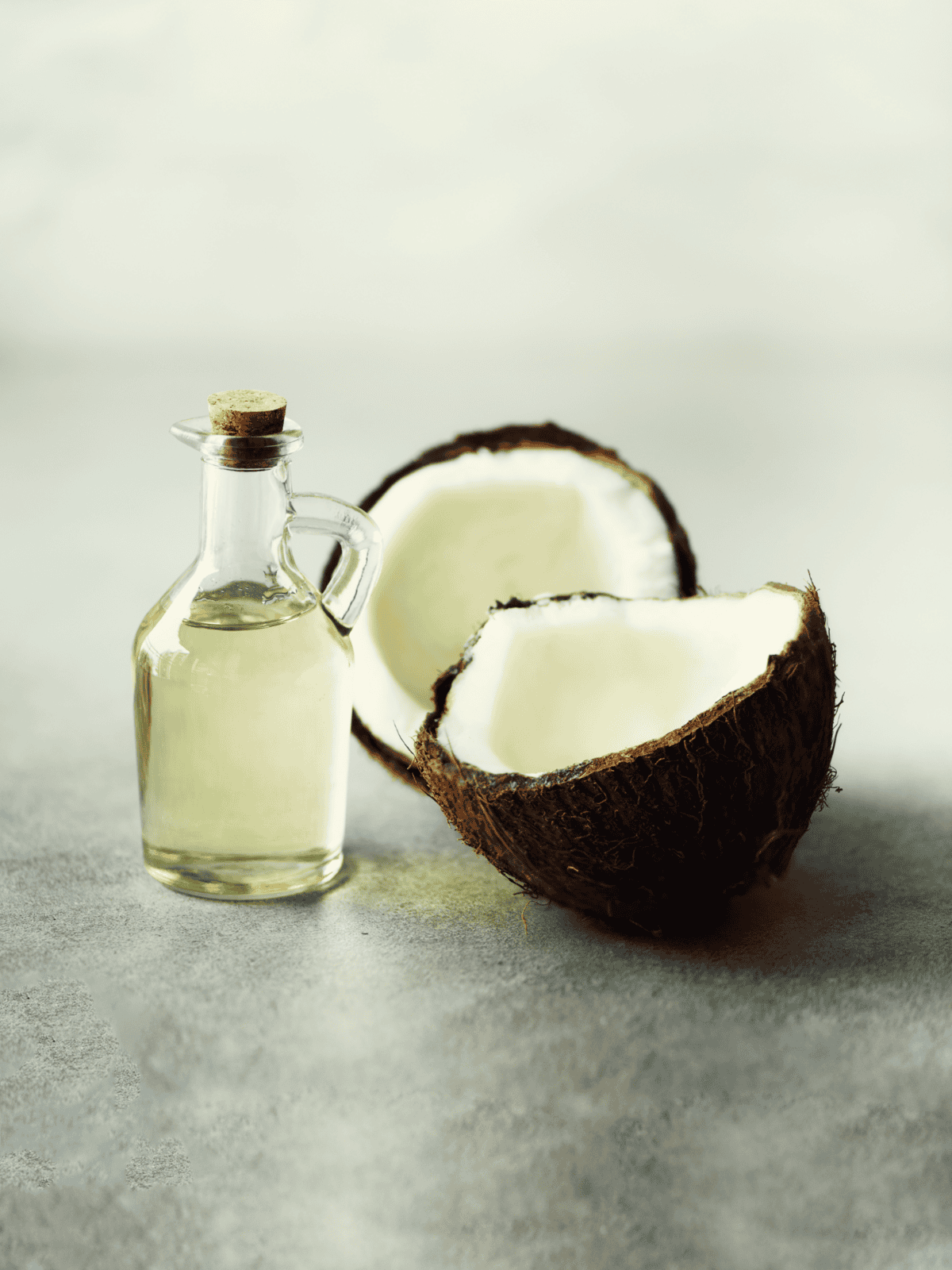
Refined coconut oil is known for its mild taste and ability to withstand high cooking temperatures. Both types can be used in culinary dishes or prepared for skincare applications. Importantly, unrefined coconut oil is noted for being particularly beneficial when used as a supplement for dogs, especially if it is organic and cold-pressed.
Is Coconut Oil Safe for Dogs?
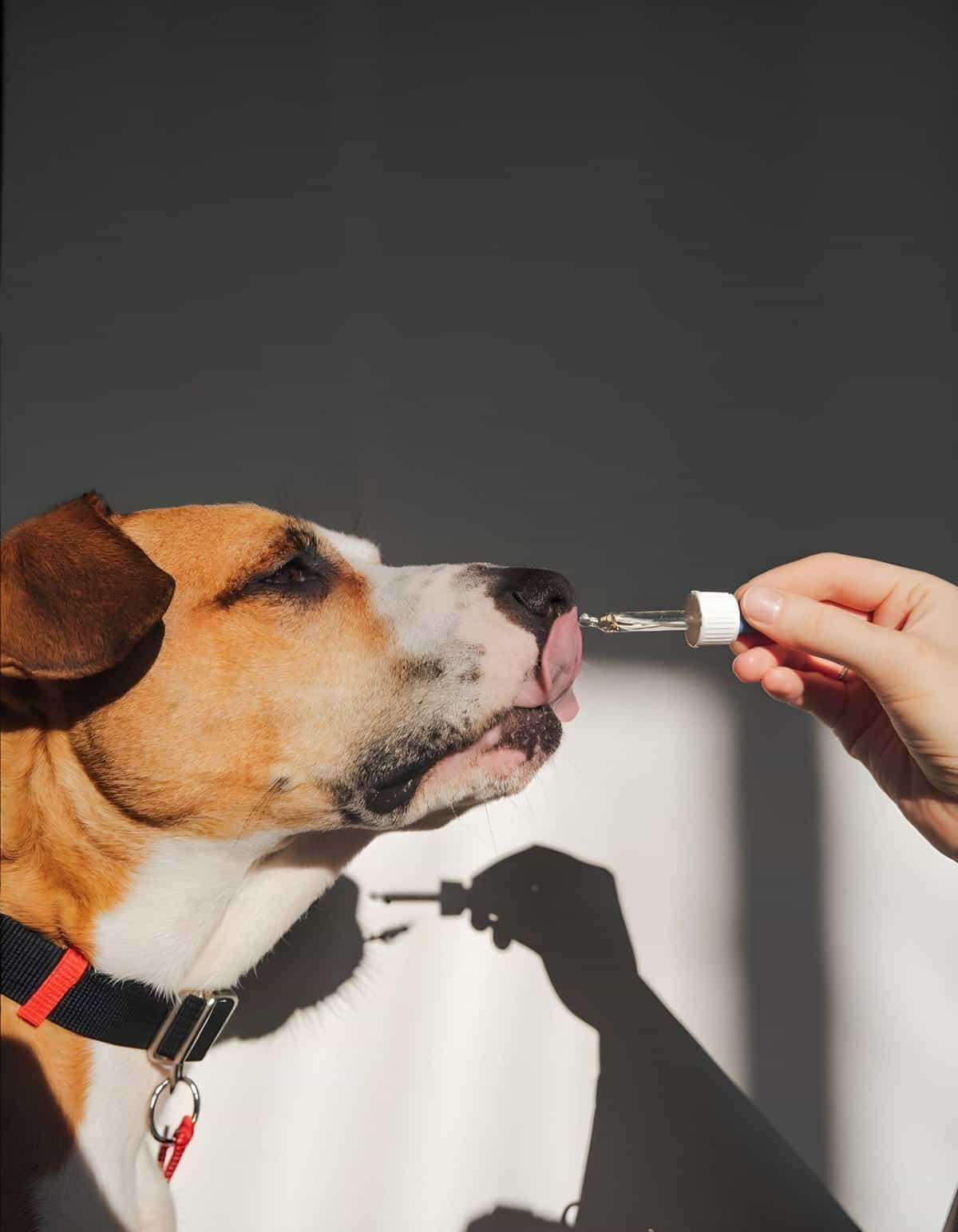
Coconut oil can be beneficial for dogs when given in small amounts. It contains medium-chain triglycerides (MCTs), which are a type of saturated fat considered beneficial. These fats are also present in dairy and palm oil. It’s important to introduce coconut oil slowly into a dog’s diet and to do so under veterinary supervision.
Starting with a small amount helps prevent stomach upset. Some dogs might show allergic reactions such as hives or itchy skin, so it’s crucial to monitor them closely.
Coconut oil can be used in multiple ways for dogs. It can be served in pure form, mixed with food, or given as an oral supplement. Additionally, it can be applied topically for addressing certain skin problems.

It’s worth noting that while coconut oil has its benefits, cold water fish oils are another great option. They are rich in omega-3 fatty acids and are less likely to upset a dog’s stomach compared to coconut oil.
Enjoying this read?
We publish this content for free to generate interest in our Premium members' area. By subscribing, you can ask the writer any questions related to pet care and this article, get access to 100+ Premium Pet Care Guides and go Ad-Free with DogFix Premium for $2.99.
Is Coconut Oil Safe for a Dog’s Skin?
While some pet owners use coconut oil to manage their dogs’ skin, experts do not always recommend it. Some believe that coconut oil helps moisturise skin and reduce irritation. It is also thought to have some antibacterial and antifungal properties. These benefits are mostly based on personal experiences and lack scientific support for dogs specifically.

Before applying coconut oil, remember that dogs have a habit of licking themselves. This behaviour might lead them to ingest coconut oil applied to their skin. Though coconut oil is generally safe to eat in small amounts, too much can upset the stomach. It could also cause more serious issues like pancreatitis if taken in large amounts.
Additionally, using coconut oil on the skin may trigger an allergic reaction, potentially worsening skin problems or causing more itching. Always exercise caution and consult a veterinarian for advice.
Is Coconut Oil Effective for Constipation in Dogs?
Coconut oil might not be the best choice for helping with a dog’s constipation. Using a lot of coconut oil can upset the dog’s stomach and lead to pancreatitis, which can be very painful. Even with small amounts, there is a risk of an allergic reaction.

While humans might use coconut oil for digestion issues, dogs do not benefit the same way in terms of constipation relief. Coconut oil is absorbed quickly in dogs, so it cannot act as a laxative.
Advantages of Coconut Oil for Dogs
Due to its special features, coconut oil delivers several potential benefits for dogs. Fatty acids, especially medium-chain triglycerides, offer nutritional support and may help reduce cholesterol levels. These acids are also known for combating inflammation and harmful microbes, making coconut oil a good candidate for boosting a dog’s well-being.

Coconut oil could help digestion and support heart and brain health. It may even assist dogs with inflammatory bowel disease by calming gut swelling. For dogs with epilepsy, it could possibly lower seizure occurrences. Additionally, by promoting better cognitive function, coconut oil can help maintain mental sharpness as dogs age.
Benefits of Coconut Oil for Dogs
Coconut oil can have several positive effects on a dog’s health. It may help with their skin, coat, digestion, and immune system.
Skin Health Enhancement
Coconut oil is known for its properties that help protect and heal the skin. It contains lauric acid, which has qualities that can fight infections. When applied to a dog’s skin, it may reduce itching and dryness and even help heal small cuts.

Some dog owners find that regular use of coconut oil can lead to smoother and softer skin. It can also be useful for dealing with flea allergies, dermatitis, and eczema.
Coat Improvement
A shiny coat is often a sign of good health in dogs. Coconut oil helps by providing essential nutrients that make the coat look full and glossy. Including coconut oil in a dog’s diet or applying it externally can reduce dandruff and improve the overall texture of the dog’s fur.

If used in meals, it is suggested to start with small amounts to avoid any negative effects. A teaspoon a day for a medium-sized dog is usually recommended.
Digestive System Support
Coconut oil may also aid digestion. It is known to help improve nutrient absorption. As a mild laxative, it can assist in maintaining regular bowel movements, reducing issues like constipation.

Additionally, coconut oil might help control harmful organisms in the gut. This can support a healthier digestive tract and improve a dog’s overall wellness.
Immune System Boost
Another benefit of coconut oil is its immune-boosting potential. Lauric acid, present in coconut oil, has properties that can help fight off bacteria and viruses.

When included in a dog’s diet, coconut oil may strengthen their defense against illness. This could mean fewer infections and a more robust overall health profile. As always, it’s important to observe how the dog reacts and consult with a vet for personalized advice.
Nutritional Profile of Coconut Oil
Coconut oil offers fatty acids, such as lauric acid, along with vitamins E and K. It also carries antioxidants that might benefit dogs.
Fatty Acids Content
Coconut oil is rich in medium-chain triglycerides (MCTs). These include lauric acid, which is known for its antimicrobial properties. Lauric acid can help with immune support and offer energy. MCTs are quickly used by the body, which may aid metabolism. Pet owners sometimes see improvements in coat and skin health.

Saturated fats make up the majority of the oil. It’s essential to introduce it to a dog’s diet gradually, as the dense fat content might lead to digestive upset. This element makes coconut oil different from many other natural fats.
Vitamin E and K Levels
Coconut oil contains small amounts of vitamin E. This vitamin serves as an antioxidant, protecting cells and improving skin health. It might contribute to a shiny coat for dogs. Vitamin E is essential for maintaining healthy skin and a glossy fur coat.

Coconut oil contains modest vitamin K levels, but it is still present. Vitamin K plays a role in blood clotting. While dogs usually get enough vitamin K in their regular diet, coconut oil can be a mild supplemental source. Monitor intake to avoid excessive consumption.
Antioxidant Properties
Coconut oil’s antioxidants can help neutralize free radicals, which can cause cellular damage over time. These antioxidants may help promote long-term health by protecting cells.

Coconut oil’s antioxidants come from its natural compounds. Antioxidants may support immune function and overall well-being. While not a cure-all, these elements are helpful additions to a dog’s nutritional plan. Pet owners might consider coconut oil for its potential protective benefits.
Appropriate Usage of Coconut Oil for Dogs
Coconut oil can be beneficial for dogs, both as part of their diet and when applied to their skin. It’s important to know the right ways to use it to ensure safety and maximize its benefits.
Dietary Integration
Coconut oil can be a nutritious addition to a dog’s diet. It contains medium-chain triglycerides (MCTs), which can boost energy and support overall health. A common starting point is to add a small amount to their food, such as half a teaspoon per day for small dogs and one teaspoon for larger dogs.

After a week or so, the amount can be gradually increased. Monitoring the dog for any signs of digestive upset is important. If a dog shows signs of discomfort, reduce the amount and consult a veterinarian. Not every dog may respond the same, so careful observation is key.
Topical Application
When used on the skin, coconut oil can help improve a dog’s coat and alleviate dryness. To use it topically, start by rubbing a small amount of the oil between your hands until it melts, then apply to the dog’s skin and coat.

This can be particularly beneficial for dry or itchy areas. For best results, leave the oil on for about five minutes, then wipe or rinse off any excess to prevent a greasy feel. Repeat this process about once a week, or as needed, to maintain skin health. Attention to any reactions, like redness or itchiness, ensures safe use.
Dosage Recommendations
Coconut oil can be beneficial for dogs when given correctly. The amount should be adjusted based on the dog’s weight, and the frequency should be decided.
Based on Weight

When giving coconut oil to a dog, weight plays a big role in determining the right amount. Start small: A common starting dose is 1/4 teaspoon per day for small dogs and up to 1 teaspoon for larger dogs. Gradually increase to avoid digestive issues.
| Weight | Amount of coconut oil |
| Small dogs (under 10 lbs) | Start with ¼ teaspoon daily |
| Medium dogs (10-30 lbs) | Begin with ½ teaspoon daily |
| Large dogs (30-60 lbs) | Start with 1 teaspoon daily |
| Extra-large dogs (over 60 lbs) | Begin with 1.5 teaspoons daily |
Gradually increase the dosage up to a maximum of one teaspoon per 10 pounds of body weight. Observing your dog’s reaction is important; if any adverse signs appear, adjust accordingly.
Determination of Frequency
Initially, introduce coconut oil slowly into a dog’s diet, perhaps every other day, then build to daily use as tolerance develops. Daily usage can result in better coat health and energy levels.

Monitor the dog for possible reactions. Some dogs might need only two to three times a week. Dogs with specific health concerns may benefit from a customised schedule upon veterinary advice.
Pay attention to the dog’s energy levels, stool consistency, and coat condition. These signs can help decide how often to give coconut oil.
Possible Hazards of Coconut Oil for Dogs
Coconut oil can lead to health issues for dogs if not used cautiously. Some dogs may gain extra weight, which could result in obesity. Digestive problems like diarrhoea and loose stools may also occur.
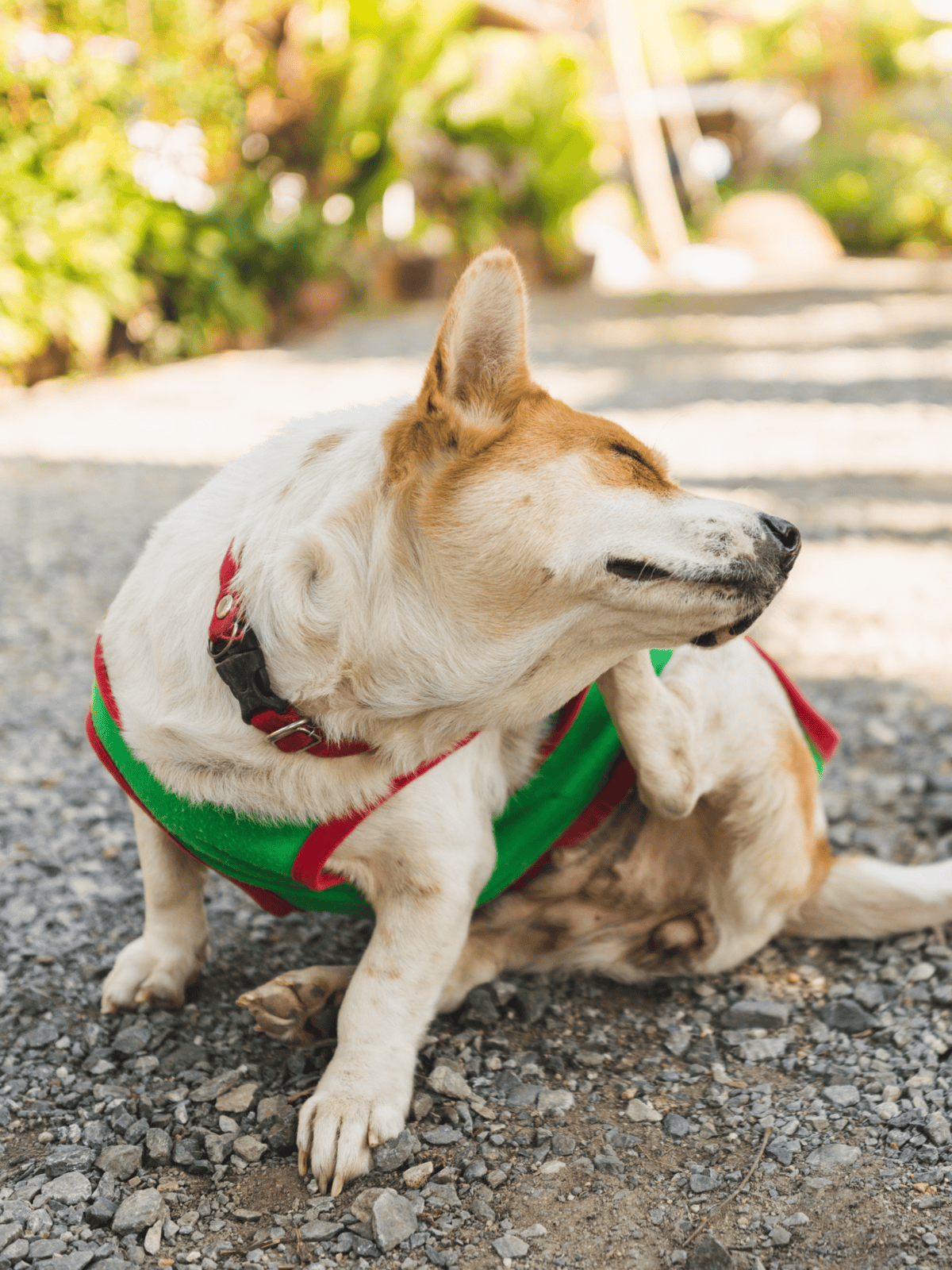
Another concern is high levels of certain cholesterol types. Some dogs might react negatively to allergies, experiencing itchy skin, hives, or red bumps. If a dog already struggles with skin conditions, coconut oil might make things worse.
Pancreatitis is another potential danger, marked by symptoms such as belly pain and a lack of hunger. It can also cause repeated vomiting, tiredness, and dehydration. Severe cases might even lead to collapse or shock.

Considering these points, it’s important to consult a veterinarian before including coconut oil in the dog’s diet or care. This ensures it’s appropriate for their particular health requirements.
Potential Side Effects
Coconut oil can sometimes cause side effects when used with dogs. Pet owners should be aware of possible allergic reactions, digestive problems, and risks to long-term health.
Allergic Reactions
Dogs may experience allergic reactions to coconut oil, though this is not common. Symptoms usually show up as itching, redness, or irritation on the skin. If a dog shows these signs after using or ingesting coconut oil, it’s advised to stop use immediately. An allergic reaction may also lead to sneezing or coughing if inhaled.
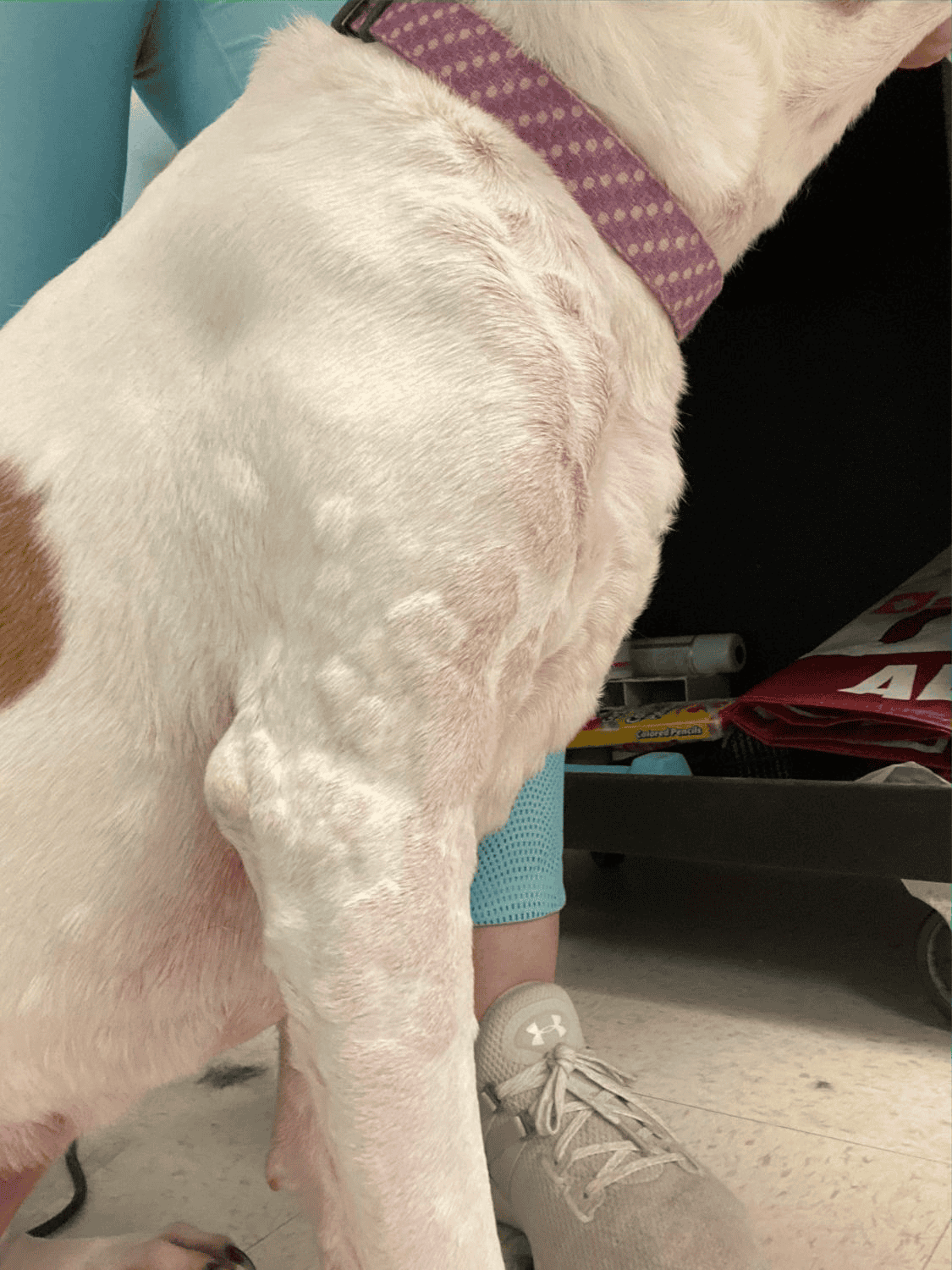
In serious cases, an allergic reaction might lead to swelling, vomiting, or difficulty breathing. Veterinary advice should be sought in these instances. While the majority of dogs tolerate coconut oil well, monitoring the dog’s initial response to small amounts is wise.
Gastrointestinal Issues
When introducing coconut oil to a dog’s diet, some dogs might face gastrointestinal issues. Stomach upset, diarrhoea, or greasy stools are possible if too much is given too quickly. This can be avoided by starting with small amounts and gradually increasing the dose.

An abrupt introduction or large doses may overwhelm a dog’s digestion. It’s essential to watch for any signs of distress, such as vomiting or a noticeable change in appetite. Adjusting the amount or frequency of coconut oil given can help in mitigating these issues. Careful observation is key in ensuring a positive experience.
Long-Term Health Concerns
Long-term use of coconut oil in dogs’ diets might raise concerns regarding calorie intake and weight gain. Coconut oil is high in calories and fat, which, if not managed, can lead to obesity and related health issues in dogs. Monitoring the dog’s weight and adjusting the regular diet accordingly is crucial.

There’s also discussion about how coconut oil impacts cholesterol levels. It’s believed that, in some cases, it could potentially elevate bad cholesterol levels in dogs. Consulting with a veterinarian before making coconut oil a staple in a dog’s diet ensures health risks are minimized. It’s a proactive step that caretakers should not overlook.
Understanding Lauric Acid’s Role
Lauric acid is a key component of coconut oil. It can offer special benefits for dogs, such as fighting germs and reducing swelling.
Antimicrobial Effects
Lauric acid in coconut oil acts like a natural germ-fighter for dogs. It can help reduce harmful bacteria, viruses, and fungi by breaking down the outer layer of these microorganisms. Lauric acid might also support a dog’s immune system in its efforts to fend off these unwanted invaders.

When added to a dog’s diet, coconut oil with lauric acid can promote healthier skin and improve the dog’s coat. This is because fewer germs mean fewer chances for skin problems, like rashes or infections. Careful use helps keep these health benefits safe and effective.
Anti-Inflammatory Impact
Inflammation can cause discomfort and health problems for dogs. Lauric acid may play a part in calming this inflammation. It works by influencing pathways in the body that cause swelling and pain.

Due to its anti-inflammatory properties, adding coconut oil to a dog’s diet might help ease joint pain or skin irritation. This is particularly helpful for older dogs, who might suffer from arthritis or other chronic conditions. As part of a balanced diet, this natural remedy can offer relief, making life more comfortable for dogs without side effects from medications.
Homemade Dog Treats with Coconut Oil
Coconut oil can be a healthy addition to homemade dog treats. However, to ensure the treats are safe and tasty for dogs, the right recipes and ingredients must be used.
Simple Recipes
Making dog treats at home with coconut oil is easy. Start with a basic recipe like oatmeal coconut balls. Combine oats, coconut oil, and peanut butter. Mix until smooth, then form small balls.

Bake at 350°F for 10-12 minutes. Another option is coconut pumpkin bites. Use canned pumpkin, coconut oil, and rice flour. Roll the dough flat and cut into shapes. Bake at 325°F for 15 minutes. These treats are quick to prepare, and dogs love them.
Safe Ingredients Mix
When making dog treats, choosing safe ingredients is important. Use unsweetened coconut oil, as sugar is not good for dogs. Peanut butter should be xylitol-free since this sweetener is harmful to dogs.

Pumpkin is a good choice for its fiber content. Avoid using ingredients like chocolate, grapes, and nuts. Always check for allergies and try small amounts first to ensure your dog doesn’t have a bad reaction. With safe ingredients, homemade treats can be a healthy and fun part of a dog’s diet.
Coconut Oil Versus Other Oils
Coconut oil is popular for dogs because of its potential health benefits. This section compares coconut oil with fish oil and olive oil, focusing on key differences, benefits, and drawbacks.
Comparison with Fish Oil
Coconut oil and fish oil are often used to improve a dog’s skin and coat. Fish oil is rich in omega-3 fatty acids, which are important for reducing inflammation and promoting heart health. These acids are not found in coconut oil, which instead contains medium-chain triglycerides (MCTs). MCTs may help with energy and digestion.

Despite the benefits of fish oil, it can spoil easily and might have a fishy smell. Dogs may dislike this. On the other hand, coconut oil is more stable and has a pleasant smell. Fish oil might be more beneficial for dogs with joint issues, while coconut oil may benefit dogs needing more energy or relief from skin problems.
Olive Oil as an Alternative
Olive oil is another option for dogs, offering its own set of benefits. It’s high in monounsaturated fats which support heart health and may help manage weight. Unlike coconut oil, olive oil contains antioxidants like vitamin E, which supports a dog’s immune system.

While coconut oil helps with skin conditions, olive oil may not be as effective for this specific purpose. Dogs usually accept the flavor of olive oil, and it’s easy to find in stores. Coconut oil offers unique benefits that olive oil doesn’t, such as aiding digestion with its MCT content. It’s important to choose based on a dog’s specific needs and preferences.
Guidelines for Selecting High-Quality Coconut Oil
When selecting coconut oil for dogs, it’s important to look for key features that indicate high quality. These include the oil’s purity and the presence of trusted labels and certifications.
Identifying Pure Virgin Oil
Pure virgin coconut oil comes from fresh coconuts, not dried copra. This ensures a higher level of nutrients. It is essential to check for labels stating “virgin” or “extra virgin.” Such terms indicate minimal processing.

Avoid oils that list any added ingredients or chemicals. Pure coconut oil should not include any preservatives. Its natural scent should be mild and pleasant.
A quick way to test coconut oil at home: it should turn solid when cooled below 76°F (24°C). This indicates its purity. If it remains liquid at cooler temperatures, it might contain impurities.
Understanding Labels and Certifications
Labels and certifications play a vital role in confirming the quality of coconut oil. Look for certifications such as USDA Organic or Non-GMO Project Verified. These ensure the oil is free from harmful pesticides and genetically modified organisms.

It is crucial to read the label thoroughly. Choose products with a single ingredient: coconut oil. This indicates that the oil is unrefined and pure.
Be cautious of misleading buzzwords on the packaging. Terms like “natural” or “pure” without certified seals may not mean high quality. Reliable certifications provide assurance of the oil’s excellence and purity.
Store-Bought vs. Homemade Coconut Oil Products
Choosing between store-bought and homemade coconut oil for dogs requires examining both options closely. Store-bought products offer convenience and consistency, while homemade preparations allow for control over ingredients and quality.
Evaluating Commercial Products
Store-bought coconut oil products come in different forms, like oils, treats, and supplements. They often have clear labelling that indicates purity and nutritional content. Many products are organic and cold-pressed, which retain beneficial nutrients.
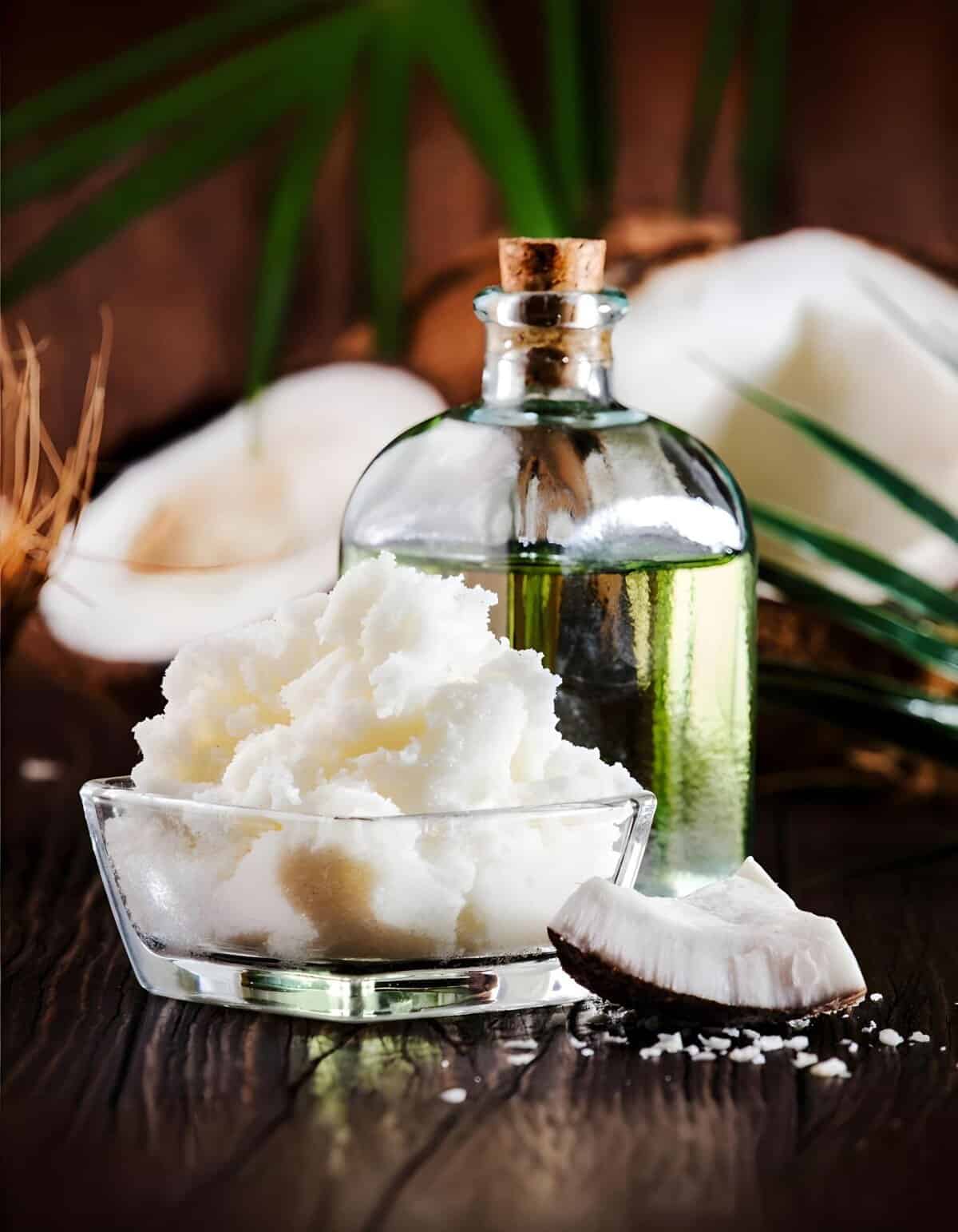
Checking for certifications such as USDA Organic can ensure quality. Consumers should read ingredient lists carefully to avoid additives that could harm dogs. Pricing varies, with many affordable choices that balance cost with quality. Customer reviews can provide insight into effectiveness and palatability.
Tips for DIY Preparations
Making coconut oil at home means more control over the process. Choose organic, unrefined coconut oil for the best results. Melt the oil gently, avoiding high heat that can break down nutrients.
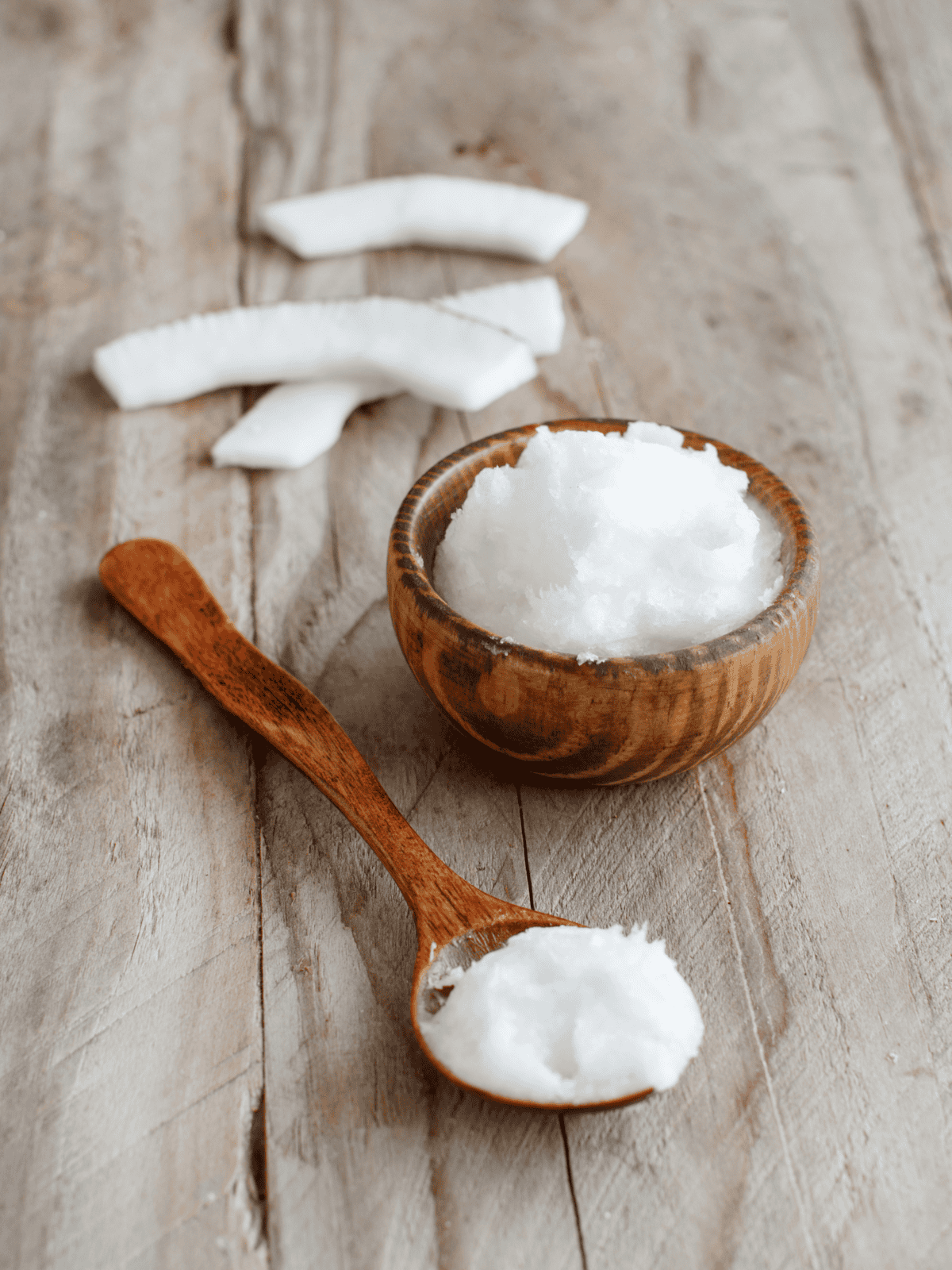
When preparing dog treats, mixing coconut oil with other pet-safe ingredients like peanut butter offers a tasty option. Balance flavours and ensure the mixture is easy to digest. Store homemade products in airtight containers to preserve freshness. Trying out small batches first helps manage quality and taste preferences.
